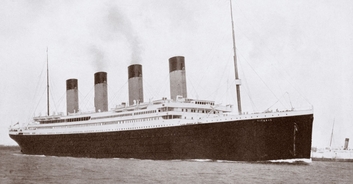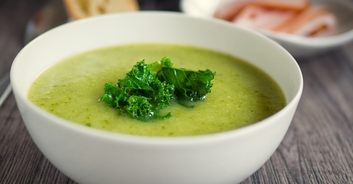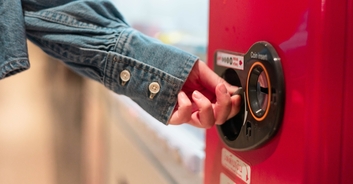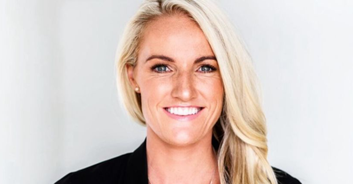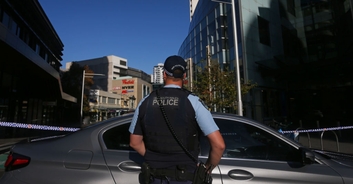On Sunday, attacks in Sri Lanka's capital of Colombo killed 311 people and wounded almost 500. As an operation which targeted Easter church services and luxury hotels, it was soon clear that the attacks were terror-related.
"Today as a nation we mourn the senseless loss of innocent lives this past Easter Sunday," Prime Minister Ranil Wickremesinghe tweeted. "I would like to thank the military and police forces, the medical personnel and all those who have worked bravely and tirelessly without concern for their own safety, to ensure the safety and security of our citizens. It is imperative that we remain unified as Sri Lankans in the face of this unspeakable tragedy." He condemned the “cowardly attacks on our people” and asked, “all Sri Lankans during this tragic time to remain united and strong.”
In a series of raids hours after the blasts, police arrested 24 suspects and found 87 detonators at Petta's Bastian Mawatha bus station. Taking no chances, however, the government has moved to block access to Facebook, Instagram and WhatsApp and has also imposed a curfew.
Donald Trump tweeted his condolences but grossly overstated the death toll, claiming that the attacks killed "138 million people". The US president deleted the tweet but later stated that he had spoken directly to Sri Lankan president Maithripala Sirisena on Sunday when he had actually spoken to Sri Lankan prime minister Ranil Wickremesinghe that morning.

A government spokesperson had originally named the National Thowheed Jamath (NTJ) jihadist group as the main suspects in the attack however, via their Aamaq news agency, ISIS have now claimed responsibility.
“The perpetrators of the attack that targeted nationals of the countries of the coalitions and Christians in Sri Lanka before yesterday are fighters from the Islamic State,” they stated, according to a translation by the Associated Press.
“The preliminary investigations have revealed that what happened in Sri Lanka was in retaliation for the attack against Muslims in Christchurch,” minister of defence Ruwan Wijewardene told the Sri Lankan parliament.

However, the attack has served to highlight a fractious political environment. As well as causing confusion within the Trump administration, the unique governmental setup left Prime Minister Wickremesinghe largely in the dark regarding national security concerns.
President Sirisena sacked Prime Minister Wickremesinghe and his cabinet in October and tried to instate a new prime minister. However, due to the turmoil that ensued, Sirisena was forced to reinstate Prime Minister Wickremesinghe - to placate the supreme court. However, the prime minister was not invited to security briefings.
President Senaratne stated that intelligence agencies had begun issuing warnings on 4 April. The chief of police then received a detailed warning from the defence ministry and, on 11 April, the heads of several security divisions took receipt of a memo warning that an attack was likely.

Furthermore, Sri Lankan officials stated that both Indian and US intelligence had warned of a threat, according to US media. Sri Lankan authorities are also said to have had names of members of NTJ. "It is shameful for all of us," stated Rauff Hakeem, the minister for town planning. "We are all ashamed of this."
He added that the situation constituted a "colossal failure of intelligence". He is one of a number of officials who stand at a distance from Sri Lanka's homeland intelligence services but who has called out the government for its perceived lack of action.
"Some intelligence officers were aware of this incidence," tweeted telecommunications Minister Harin Fernando. "Therefore there was a delay in action. Serious action needs to be taken as to why this warning was ignored."

That the Sri Lankan government had a degree of prior knowledge appeared to be backed up by the suspiciously speedy arrests. However, President Sirisena's office is insistent that proper protocol was followed following receipt of the information. "Our understanding is that it was correctly circulated among security and police," Shiral Lakthilaka, a senior adviser to President Sirisena, told the BBC.
Yet ISIS's claim of responsibility has cast further doubt over the quality of Sri Lanka's intelligence. That said, terror groups have regularly claimed responsibility for attacks which they did not, in fact, orchestrate.
Sunday's attacks targeted churches in Batticaloa, Negombo and the city's Kochchikade district as well as the Kingsbury, Shangri-La and Cinnamon Grand hotels. Another blast rocked the city yesterday when a bomb exploded as police attempted to defuse it. Thankfully, no one was injured in that particular blast.

A state of emergency has been announced, which came into effect at midnight on Sunday. Having not been used since the Sri Lankan civil war, this doctrine has given the military broad powers including the right to raid a property without a warrant.
Muslim groups have been quick to condemn the attacks. "On behalf of the Sri Lankan Muslim community, we offer our condolences to the people of Christian faith and extend our hands of friendship in solidarity," said the council of Muslim theologians - All Ceylon Jamiyyathuul Ulama.
Regardless of who perpetrated the attack, it is the victims who must be remembered. Today, at the request of Prime Minister Wickremesinghe, the country is observing a day to remember the dead. All over the island of Sri Lanka, innocent people are being buried as a result of heightened global religious tension.







